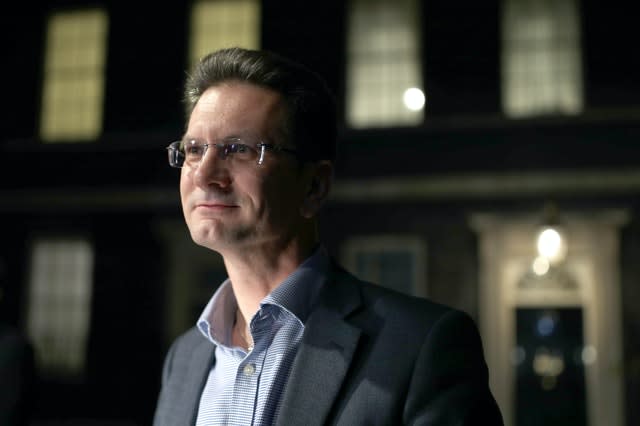Minister: Security legislation does not offer undercover agents licence to kill
Security minister James Brokenshire has denied undercover agents are being given a “licence to kill” with new legislation.
He told MPs there are upper limits to the activity operatives can be authorised to carry out under the Covert Human Intelligence Sources (Criminal Conduct) Bill.
These are contained in the Human Rights Act, he said, and include the right to life, prohibition of torture, and prohibition of subjecting someone to inhuman or degrading treatment.
Several MPs raised concerns over the scope of the Bill and the Government’s unwillingness to specify a list of the limits in the legislation, which aims to protect undercover operatives from prosecution if they are forced to break the law on operations.
The Bill also seeks to define circumstances in which operatives can commit crime, replacing various pieces of overlapping legislation.
It will cover 13 law enforcement and government agencies, including the police, the National Crime Agency, the armed forces and the prison service.
Speaking in the Commons, Mr Brokenshire said covert human intelligence sources (CHIS) will “never be given unlimited authority to commit any or all crime”.
He told the Commons: “Where a CHIS commits any criminality outside the tight parameters of the authorisation the prosecuting authorities can consider in the normal way.
“Because of the clandestine nature of the work, I hope members will understand there are limits as to what I can say publicly about the role that CHIS play in saving lives and property without exposing sensitive information about their methods and techniques.
“I know there are concerns about somehow providing a licence to kill or to commit torture – let me be clear, there are upper limits to the activity that could be authorised under this Bill and these are contained in the Human Rights Act.
“This includes the right to life and prohibition of torture or subjecting someone to inhuman or degrading treatment or punishment.
“It is unlawful for any public authority to act in a way that is incompatible with the European Convention on Human Rights and the legislation makes clear nothing in the Bill detracts from a public authority’s obligations under the Human Rights Act.
“Therefore an act which would be incompatible with the ECHR could not lawfully be granted under this Bill.”

Conservative former minister Steve Baker earlier said: “I think one of the problems the Government has got today is for those of us who like the red meat of law enforcement, law and order, he’s forced us to look inside the abattoir and of course we don’t like what we see.
“On this point about stringent limits, could he explain why there’s not more on the face of the Bill to put those limits in place, because I can’t imagine ministers will be authorising killing or torture.”
Mr Brokenshire did not respond in detail to the intervention but later said: “We do not believe, however, it’s appropriate to draw up a list of specific crimes which may be authorised or prohibited.
“To do so would place in the hands of criminals, terrorists and hostile states a means of identifying our agents and sources – creating a potential checklist for suspected CHIS to be tested against.”
Mr Brokenshire claimed this would result in an “increased threat to the public”.
Before the second reading debate, Conservative former minister David Davis accused the Government of trying to rush through the legislation.
He told the Commons: “The last time the Government rushed a security Bill through in this way, I and others had a challenge in the court of law.
“The Government lost and had to rewrite the Bill. We don’t want to do that again. So what can we do to ensure that these profound issues are debated before we allow the Government to break our laws whenever it chooses?”
Labour’s Apsana Begum (Poplar and Limehouse) warned the Bill “could end up providing informers and agents with the licence to kill”, while party colleague Zarah Sultana (Coventry South) claimed the measures mark the latest step in a “frightening descent into a growing authoritarianism” from the Government.
The Bill was given a second reading by 182 votes to 20, majority 162, and will undergo further scrutiny at a later date.

